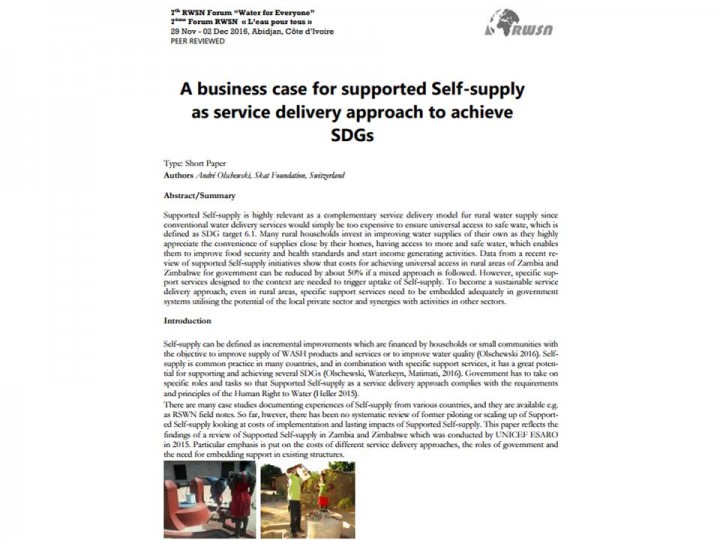A business case for supported Self-supply as service delivery approach to achieve SDGs Olschewski, A. (2016)
Supported Self-supply is highly relevant as a complementary service delivery model for rural water supply since conventional water delivery services would simply be too expensive to ensure universal access to safe water, which is defined as SDG target 6.1. Many rural households invest in improving water supplies of their own as they highly appreciate the convenience of supplies close by their homes, having access to more and safe water, which enables them to improve food security and health standards and start income generating activities.
Data from a recent review of supported Self-supply initiatives show that costs for achieving universal access in rural areas of Zambia and Zimbabwe for government can be reduced by about 50% if a mixed approach is followed. However, specific support services designed to the context are needed to trigger uptake of Self-supply. To become a sustainable service delivery approach, even in rural areas, specific support services need to be embedded adequately in government systems utilising the potential of the local private sector and synergies with activities in other sectors.
Bibliographic information
Olschewski, A. (2016). A business case for supported Self-supply as service delivery approach to achieve SDGs Skat Foundation, Switzerland, 7 th RWSN Forum “Water for Everyone” 7 ème Forum RWSN « L’eau pour tous » 29 Nov - 02 Dec 2016, Abidjan, Côte d’Ivoire
Filter / Tags
OtherRuralPoliticians and local decision makersEnglish
Downloads
A business case for supported Self-supply as service delivery approach to achieve SDGs
Type: application/pdf
Size: 0.78 MB

